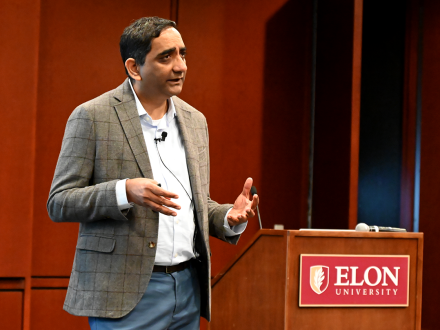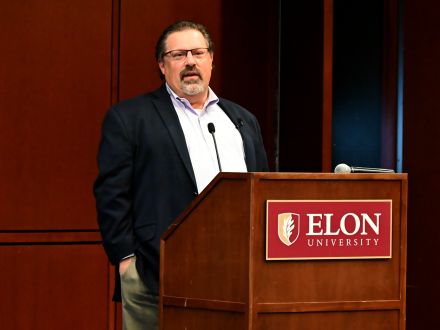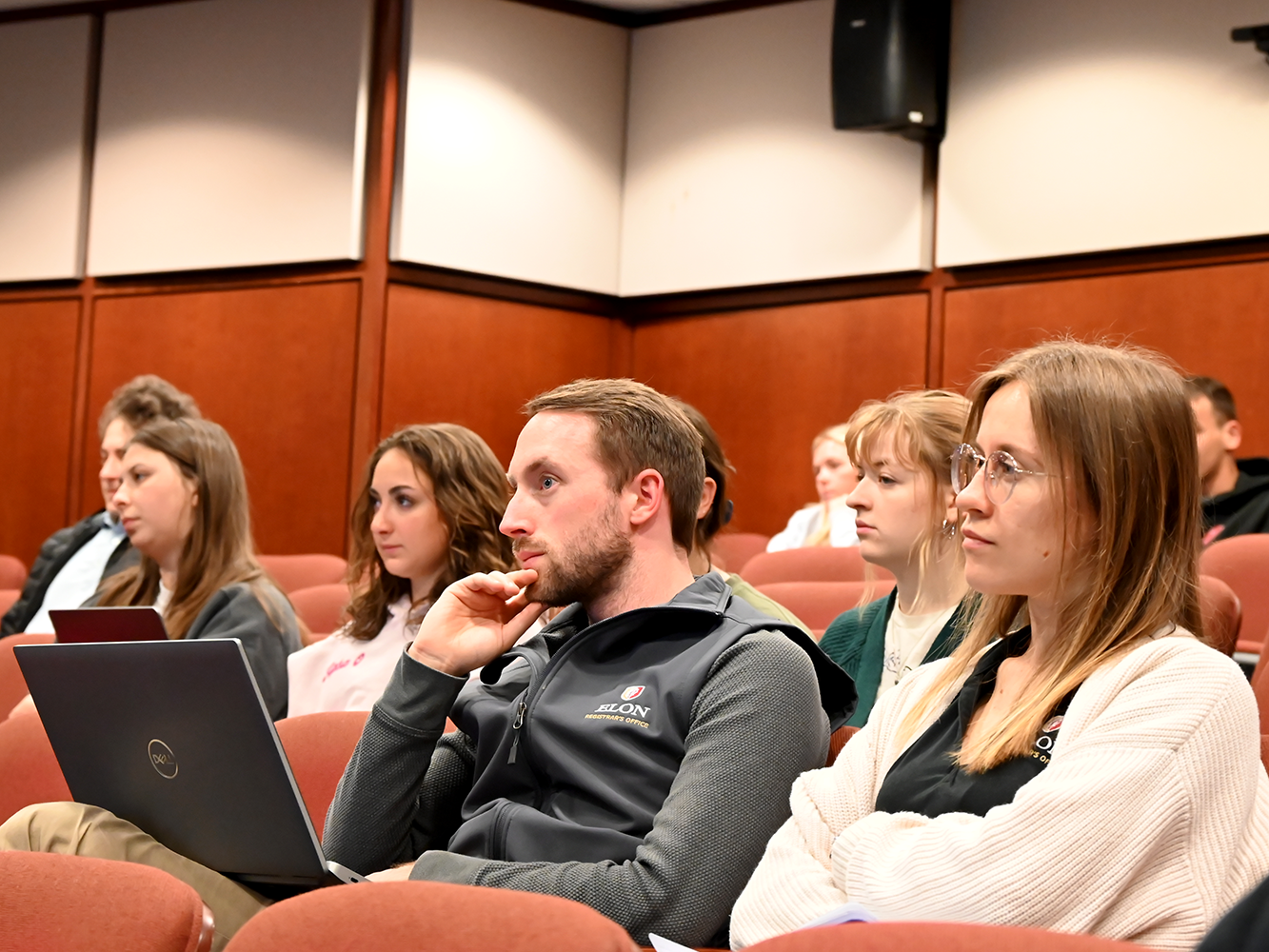A program in the LaRose Digital Theatre hosted by the Center for Organizational Analytics sparked dialogue on generative AI's enterprise applications and legal considerations.
Elon University’s Center for Organizational Analytics hosted a mini-conference in the LaRose Digital Theatre on Friday, April 5, 2024, to explore enterprise and legal considerations of generative AI.
“It is important for us to hold these discussions with our students and community,” said Manoj Chari, an assistant professor of business analytics and the center’s director. “AI will continue to be a topic that needs to be examined at all angles.”
Keynote Speakers
Shiva Kommareddi
Shiva Kommareddi, a managing director at Accenture, focused his session on the practical applications of AI for businesses.

Having launched numerous successful data and AI startups, including Core Compete, Kommareddi brought a wealth of experience in deploying advanced analytics and AI within retail, manufacturing, and financial sectors. He explained the value of having AI generate responses for customer service or write copy for product descriptions.
“Many are over-thinking AI and how to use it,” Kommareddi said. “You need to experience the innovation to figure out how it can work best for you.”
David Levine
Professor David Levine at Elon University School of Law School presented on legal implications and considerations surrounding generative AI.
If OpenAI falls under trade secret protection, Levine asked, and even developers of the code are not entirely sure how the code selects output – can AI still be a trade secret?
“That question may not need to be decided until a national security risk is discovered,” Levine said.

Levine’s legal scholarship focuses on the intersection of technology, secrecy, and public policy. An affiliate scholar at the Center for Internet and Society at Stanford Law School, he also was a fellow at Princeton University’s Center for Information Technology Policy from 2014-2017.
In recognition of his scholarly work, Levine was named the Jennings Professor and Emerging Scholar at Elon Law for 2017-2019. Most recently, Levine was named a fellow at the University of Milan’s Information Society Law Center.



